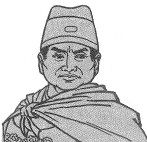问题
单项选择题 案例分析题
患者女,70岁,因“发热、乏力、嗜睡3d”来诊。查体:T38.5℃,BP90/50mmHg;嗜睡,瞳孔等大正圆,对光反射灵敏。双肺呼吸音清,无干、湿性啰音;HR100次/min,律齐,A2>P2,无病理性杂音。腹软,无肌紧张,无压痛及反跳痛,肝、脾不大,墨菲征(-),肠鸣音正常;双下肢无水肿;病理反射未引出。血常规:WBC15×109/L,N0.90,CRP100mg/L。尿常规:WBC满视野/HP,RBC10~20个/HP,蛋白微量。胸部X线片:未见异常。
该患者最可能的诊断是()
A.病毒性脑炎
B.社区获得性肺炎
C.急性肾盂肾炎
D.急性胆囊炎
E.急性阑尾炎
答案
参考答案:C

